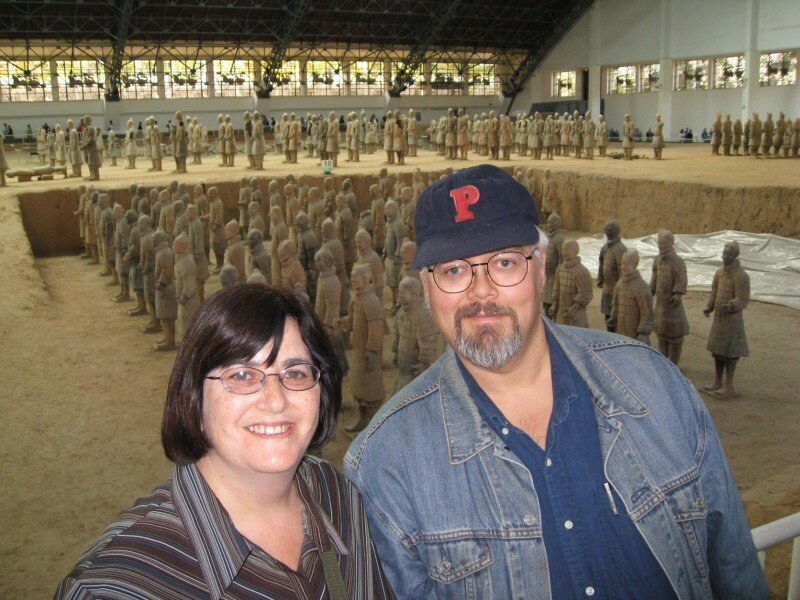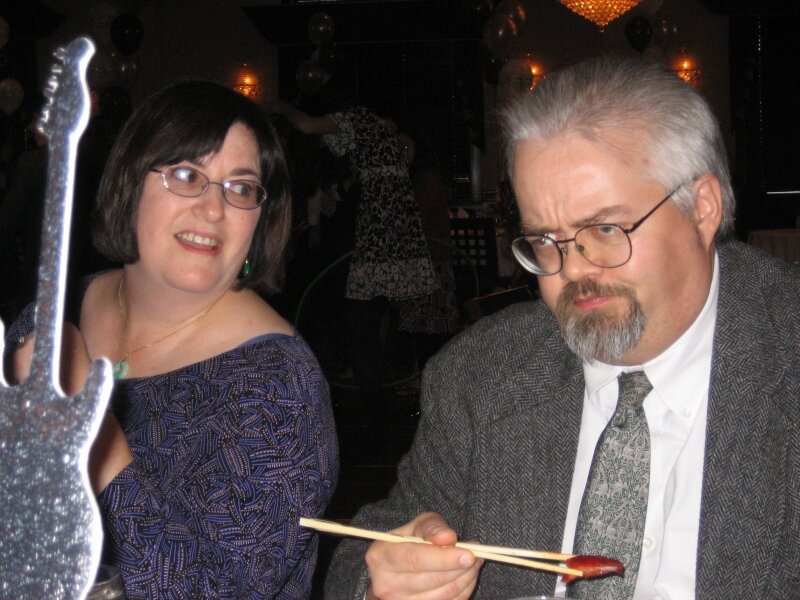My story
In November 2008, on the Friday before Thanksgiving, I arrived home to find my husband, John, dead on the kitchen floor. He was 46 years old and had just returned that afternoon from a business trip. The last time I’d seen him was three days earlier.
In that moment, I felt my world shift on its axis and throw me into a new dimension of confusion and despair. For several years I felt like a zombie, going through the motions of life but not actually living. I had trouble sleeping. My appetite became erratic. I had problems thinking clearly and couldn’t focus on my work. I started having panic attacks. I got the flu—twice in one season. I developed shingles. I spent the bulk of my time crying, eating junk food, and watching TV in an effort to distract myself from my reality.
I saw two different therapists. Both of them were competent professionals who helped me understand myself better and become more emotionally resilient. But neither was able to teach me how to resolve my grief.
I read memoirs written by widows. I participated on social media for widows and widowers. These things made me feel a little less isolated, and less strange, but while they validated my feelings and reactions, they didn’t tell me what to do with those feelings and reactions.
I started a journal. I wrote, I spewed, I analyzed. It gave me a little more focus, helped me sit with my feelings and identify the varied emotions, face them, and come out of hiding.
I thought I was better. In fact, I was better. I could sleep. I started to exercise, to eat healthfully. I was able to enjoy moments with friends and family. But the pain of unresolved grief was ever present.
Like an invasive vine, tendrils of pain wrapped around every memory and emotion, immobilizing my mind, spirit, and body and dragging me down into the depths of the earth.
But I thought I was better. I thought that was as good as it was going to ever be.
Strangely, I found that that I knew people who were experiencing similar grief situations. My brother-in-law’s sister, my sister’s best friend, the wife of one of my husband’s best friends. Each of them experienced the sudden and unexpected death of her husband. And I discovered that I could provide them some comfort and guidance through the early, dark days of grief.
I decided to become a Certified Grief Recovery Method® Specialist so that I could help more people. I had absolutely no expectation of changing my own perspective. I thought I’d recovered as much as I was ever going to, and I’d accepted that as okay.
As part of the training, of course we participated in all of the action steps that are part of the Grief Recovery Method. We were meeting at a hotel, in September. I’d made it a habit to take a short walk outdoors every time we took a break, to stretch my legs and get some fresh air. On the day we’d completed the final step in the Method, while on my customary walk I saw a dragonfly.
John and I used to vacation in Chincoteague, Virginia. We usually went in the middle of summer, but one year we were there in late September. On our last evening, close to sundown, we were making our last trip to the Assateague Wildlife Refuge. Suddenly we were surrounded by a swarm of dragonflies. Swooping, swirling, iridescent green, pink, and gold fairies filled the sky. We sat, transfixed, smiling in wonder at each other.
That was a beautiful memory, one of my favorite quiet moments spent together. But since he had died, it – like all of my memories – had become entangled with the pain that dragged me down, down, down.
When I spotted a dragonfly on that walk outside the hotel, I smiled, my mind instantly going back to that magical moment when my husband and I were relaxed, carefree, and sharing a rare experience. And I suddenly realized – I felt happy. Just happy! No pain, no dragging down, no instant of happiness swallowed by terrible sadness. My good memories had been restored to me!
I was flabbergasted. I never expected to benefit from the training in such a personal and profound way. It’s not that my sadness is gone. I will always be sad that my husband is dead, and I miss him very much. But now I am able to truly enjoy and appreciate the good things – the memories of time spent together, the jokes he made, how he made me feel, the ways I’ve changed because he was in my life.
Now, more than ever, I want to help others as I have been helped. I want to teach you how to restore your happy memories, move beyond loss, and thrive so that you can participate fully in all of your relationships again.











